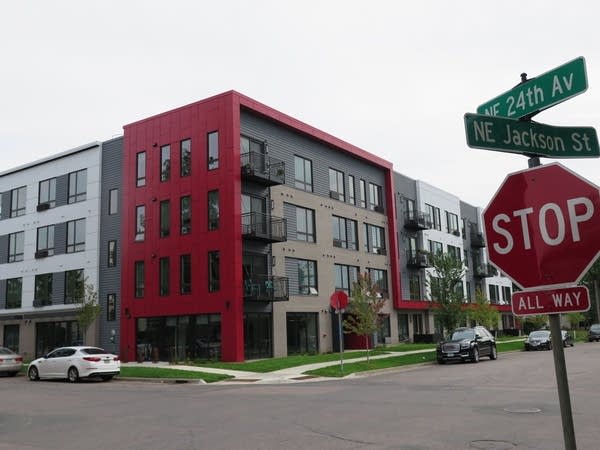Minneapolis resident-driven rent control proposal falls short of council support for November ballot

The Jax Apartments in northeast Minneapolis. A charter amendment that would have allowed Minneapolis residents to bring rent control policies directly to a general vote will not be on the November ballot.
Martin Moylan | MPR News 2019
Go Deeper.
Create an account or log in to save stories.
Like this?
Thanks for liking this story! We have added it to a list of your favorite stories.


